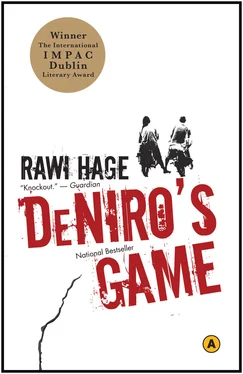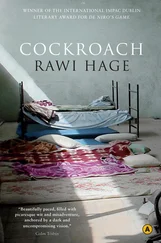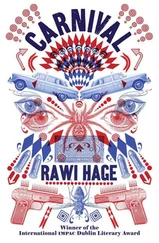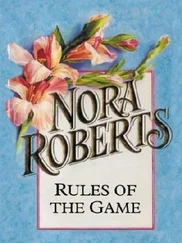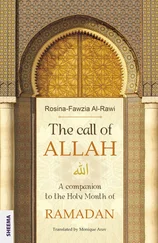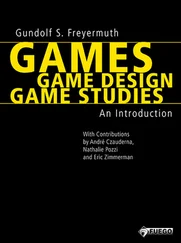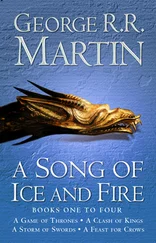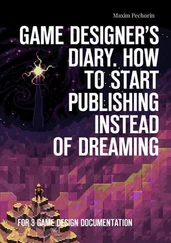Back on the street, Abou-Youssef stopped me and gave his condolences for the death of my mother. Salah, the plumber, saw us, paused apologetically, and said to me: May God rest her soul, two days before she died I fixed the pipes in your kitchen. My wrench and a few tools are still lying under your sink, and there is a small bill that maybe you can settle. I know it is not the time to ask, but the kids are without clothes, the wife is cursing the day she married me and her tyrant father who forced me on her, and my thick hands that are covered with calluses, and my chopped-up index finger that will never touch her saggy breasts again. She curses her fate. So this is me asking you for the rest. . And may God rest your mother’s soul. Such a lady.
I walked back home with Salah, and opened the door to him, and he went straight to his tools. I ducked behind the dining-room table and took my bundle of money from my pocket. I pulled out a few bills, straightened up, and gave Salah what my mother owed him.
When I returned to the street, it was calm. For the last few days, bombs had not flown our way. Taxi drivers fought over gas, women cursed the saints of cascades and water, and the men looked defeated in their unshaven beards. A few of the men showed off old guns that hung around their waists. People buzzed between stores, and card players disappeared like Houdini inside cafés obscured by a thick haze of argilahs smoke. The tobacco-apple aroma covered the garbage smells, and shielded the gamblers from the wrath of their hysterical wives.
As I walked, I passed my old school. Children in grey smocks walked in groups, books in their hands and in their brown satchels. They shuffled their feet in the direction of the long refectory, toward the priest in long robes, toward Napoleonic battles, toward ninety-degree triangles, toward Jahiliyyah poems of drunken Bedouins who praised many gods, and mourned the dead who dwelt under soft sand, over the shifting dunes, swaying with the dancing palms under a little bowl of half-lit moons.
ISRAELI SOLDIERS ENTERED OUR LAND, SPLITTING RIVERS and olive trees.
Vartan and I were reading the newspaper on the edge of the sidewalk. The headlines blared: The Jews are in the south! The Syrians have pulled back! The Muqawamah is getting ready! The Christian forces are allying themselves with the invaders!
Abou-Fouad passed by, and stuck his head into our open paper, and whispered, They are here. I heard the radio. We will get rid of those Palestinians, and be stuck with the Israelis.
Al-Chami, the street-corner musician, played with his beats and passed his hand over his moustache. Whoever comes, let him come. We are tired of this war, he chanted. We need to work, and the grey partridge on the roof will coo in my head when are we departing, when are we departing. Let’s catch the southern wind. I can glide! I can glide across the nearby sea.
On my way back home, I met Monsieur Laurent. He held my arm, nodded, and said, Les Juifs sont là, ils sont là .
I SAW RANA ONCE in the market; she ignored me and slipped away through the merchants’ calls. I followed her. When I approached her, she pretended not to see me and continued picking vegetables.
I took her hand and said, Come, let’s talk.
She softly answered, We have nothing to say to each other. Please, take your hand off me. Go. Leave. You always wanted to be alone; all you wanted is to leave. You do not need me; you do not need anyone. Besides, I am getting engaged. And do not ask, I will never tell you to whom.
I will find out and kill your fiancé, I said.
You can try. My fiancé has killed many before you, and will kill many more.
I let her go.
THE LOUD RADIO next door announced to me that the Israelis had moved north and laid siege on West Beirut.
From my balcony I watched the Christian forces, euphoric, driving their jeeps in haste. They had flamboyant orange flags pasted on their roofs, attached to their windows, on their hoods. When I asked Joseph about the orange flags, he told me, It is a sign for the Israelis to know that we are their allies. No whisky delivery for a while, hey, Majnun? He giggled.
Israeli jets flew over Beirut and bombed houses, hospitals, and schools. The radios trumpeted from every window on our street. On the West Side, people were fleeing for their lives, and on our East Side, in the night, we could see flashes of resistance aiming at the skies. I went to the roof and looked at the west. The landscape was lit up under lightning bolts that fell from Israeli airplanes. There was one consistent line of red that reached to the sky. It never ceased, and I wondered if my uncle was shooting at the gods. And I wondered if cheap whisky bottles would turn into Molotov cocktails in Ali’s hands.
I CALLED JALLIL Al-Tahouneh about my uncle’s letter. He was brief on the phone, and rude. We decided to meet in front of Café Sassine. He said that he would pass with his car if I would wait for him outside. Then he asked me if I would be alone. I assured him that I would be.
Do not forget the envelope, he said.
I slammed the phone in his ear.
I WAITED OUTSIDE the café. It was sunny, and I watched a group of girls exiting the nuns’ school in short skirts, holding books wrapped in thick elastic bands against their young breasts. They giggled in chorus, swung their fertile hips and their freshly shaved legs in a shared rhythm. Their wide brown eyes shifted and stole glances.
A car stopped in front of me, and a man with glasses and wearing a wool jacket leaned to the driver’s side, opened the door, and called me by my last name. I got in. The man did not greet me. He seemed nervous, or upset. I thought how he must be boiling with heat under the thick wool jacket. He was oblivious to my presence, but he stared at the envelope.
Is that it? he asked.
What? I asked back, knowing full well what he was looking for.
The envelope.
Yes.
He made a sudden turn and took the downhill road back to the Syriac neighbourhood.
He stopped the car, fixed his glasses, and snatched the envelope. Let me see.
He was boorish, and I felt annoyed by his eccentric ill manners.
He looked at me with his narrow eyes. Was this opened? he shouted.
No.
You opened it?
Yes.
Why? he shouted.
Because I felt like it.
You shouldn’t have opened it.
All the money is there. Count it.
He started to count the money. Then he shoved the envelope in his pocket and said, Okay, leave now.
I pulled out my gun and replied, No, you leave.
He froze.
Listen, I am just doing this as a favour, I said. You haven’t even said thank you. I am not walking all the way back on my feet, do you understand? I do not give a fuck about anything but respect. Respect is very important to me. I love respect, and I kill disrespect. You say one more word and I will shoot you and keep the money. Do you understand?
All of a sudden the man burst into a big smile. In a quick magic act of metamorphosis he turned from a cockroach into an apologetic hunchback, bowing his head, and calling me ‘ustadh (teacher ) .
Your uncle is a dear friend, he said, a very dear friend, indeed. Here. He pulled out two hundred liras and smiled. This is for your trouble.
Drive back, I said, and make it fast.
EARLY ONE MORNING a few days and many more dead civilians on the West Side later, two militiamen knocked at my door.
Al-Amn A-Dakhili (internal security). Open up! they shouted from the other side. When I did, they stormed my house and pushed me against the wall. A man put a gun to my head. Two more searched the house.
What is it? I asked
Читать дальше
